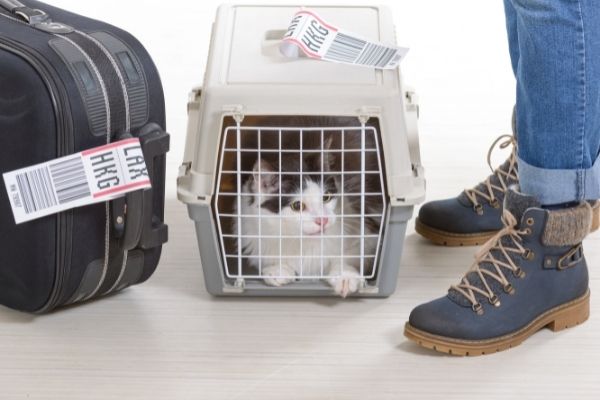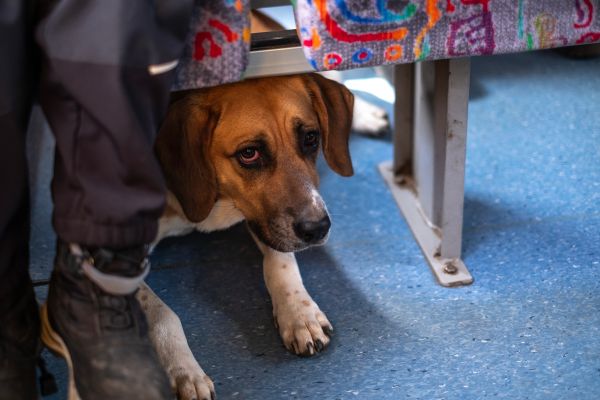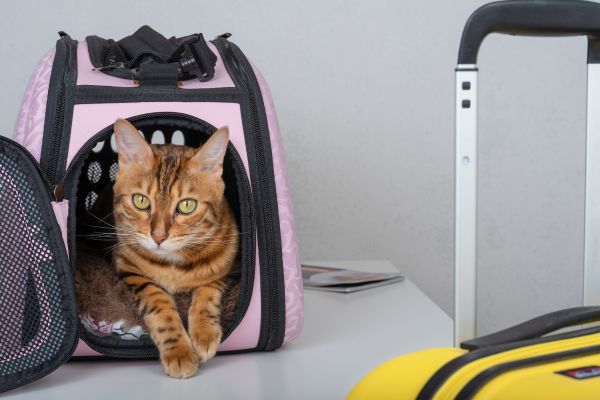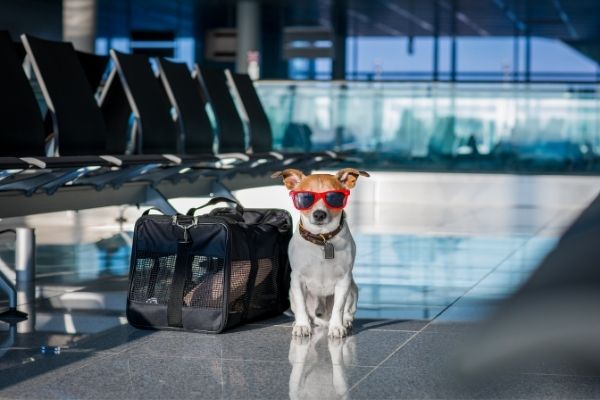
Traveling with your pet can be a blast. But before you hit the road, rails, sea, or sky, there are some important health regulations to consider.
Most destinations, both domestic and international, require a travel health certificate for pets. This document, known as a certificate of veterinary inspection (CVI), is essentially a passport that verifies your pet’s health and meets the entry requirements of your chosen location.
What is a Certificate of Veterinary Inspection?
A CVI is an official federal document issued by a licensed, federally-accredited veterinarian. It certifies that your pet has been examined and meets the health standards for travel.
The exam typically includes:
General health check: During the physical exam, the vet will assess your pet’s overall health, looking for signs of illness or disease.
Vaccination review: The vet will review your pet’s vaccination records, ensuring they are up-to-date on all required vaccinations, especially rabies.
Parasite screening: Depending on your destination, the vet may need to perform screenings for internal and external parasites and administer preventive medications.
Microchip verification: Some destinations require pets to be microchipped for identification purposes. The vet will verify the microchip implant and its corresponding number.

Two Types of Pet Health Certificates
There are two general types of CVIs for pets: domestic for interstate travel within the U.S. (usually by air) and international.
Both types have stringent rules veterinarians cannot bend. You cannot ask your veterinarian to do something unethical or illegal, such as falsifying information on the CVI or completing a generic CVI that can be used for any animal.
When traveling by public air, rail, bus, or boat, there may be additional requirements for some species of animals.
Special rules may apply to dogs that qualify as service animals under the Americans with Disabilities Act (ADA). (The links at the end of this article provide more information.)
Domestic Travel CVI
Some states within the U.S. have their own health certificate requirements, but generally, they are less stringent than international regulations. Check with your airlines and the states you’re traveling through to see if they require a CVI (each state is different).
Common requirements for pets traveling to other states include:
- current core vaccinations (including rabies vaccination)
- testing negative for parasites, including heartworm, or currently on a parasite preventive
Domestic health certificates must be written the same day the veterinarian completes a thorough physical exam and cannot be back-dated.
International Travel CVI
International travel involves stricter regulations set by the destination country. These rules can vary greatly and can be rigorous, so it’s crucial to research your specific destination and start the process at least six months before you travel.
Some countries require certain steps related to identification, vaccination, tests, and treatments to be done in a precise order and within a given timeline. [AVMA.org].
Some countries require waiting periods. Japan, for example, requires at least 180 days between the rabies titer test and a pet’s arrival into the country.
If requirements are not followed exactly, the animal may be denied entry or may be quarantined upon arrival.
As soon as you know your travel details, contact Atlantic Veterinary Hospital and ask us to assist you with the pet travel process. We will help you determine the destination country’s requirements, including any needed vaccinations, tests, and/or treatments.
When you contact us, provide the following information:
- The type of animal that will be traveling
- The country or countries of destination
- The date of departure from the U.S.
- Whether your pet will be traveling alone, as cargo, or with a person in the cabin of the plane
If your pet is eligible for a CVI, the veterinarian will issue it within the validity period (the time-frame for which the certificate can be used for your pet to travel) set by your destination country.

Tips for Traveling With Your Pet
- Before traveling, research the specific requirements for your destination.
- Before traveling, identify a veterinarian at your destination (your veterinarian may be able to provide a referral).
- Before flying, contact your airline to obtain their requirements and restrictions. The day of your flight, check again with the airline. If it is too hot or cold at the departure, connecting, or arrival airport, the airline may refuse to transport your animal. Have a backup plan ready in case your pet(s) can’t travel the day of the flight.
- Keep a copy of your pet’s health certificate and supporting documents on your person. Authorities may ask to see the documents. If you can’t produce them, your pet may be refused entry, may be quarantined, and/or you may be fined.
By planning ahead and ensuring your pet has the proper health certificate, you can ensure a smooth and stress-free travel experience. So, pack your bags, get your CVI in order, and get ready for an unforgettable adventure with your furry companion!

Additional Resources
For the latest and most accurate information on pet travel health certificates, consult multiple reliable sources. Here are some good starting points:
Your Veterinarian: The primary source for obtaining a CVI and advising you on the specific requirements for your chosen destination.
United States Department of Agriculture (USDA), Animal and Plant Health Inspection Service (APHIS):
- Taking a Pet from the United States to Another Country (Exporting a Pet)
- Bringing a Pet From Another Country Into the United States (Importing a Pet)
- USDA-Accredited Veterinarians for Certifying Pets for International Travel
- Search for a USDA-Accredited Veterinarian (International Travel)
The American Veterinary Medical Association (AVMA):
- Transporting Animals: Basic Requirements and Considerations
- Requirements and Restrictions for Transporting Dogs and Cats
United States Animal Health Association (USAHA):
Washington State Department of Agriculture (WSDA):




